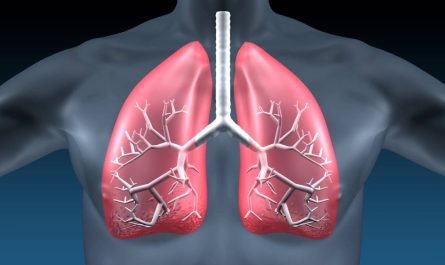What are Tumor Treating Fields?
TTFields work by applying low-intensity, intermediate-frequency electric fields via transducer arrays placed on the skin of cancer patients. These fields interact with polar molecules like microtubules in rapidly dividing cancer cell membranes. Cancer cell division relies on precise microtubule assembly and separation during metaphase and anaphase. TTFields disrupt these normal mitotic processes leading to improper chromosome segregation and inaccurate cell division, inducing cancer cell death (apoptosis). TTFields do not affect healthy cells as they do not penetrate deeply into tissues and only act on regions of rapid cellular division.
How do TTFields work on a molecular level?
Microtubules play a crucial role in cell division and are dynamically formed by polymerization and depolymerization of tubulin protein subunits. Mitosis relies on precise microtubule dynamics for faithful chromosome segregation during metaphase and anaphase. TTFields disrupt mitotic spindle formation and function through dielectrophoretic interactions between their alternating electric field vectors and the electric dipole moment of tubulin subunits and microtubules. This results in incorrect microtubule polymerization and prevents proper separation of genetic material into daughter cells. This leads to abnormal mitosis and apoptosis of cancer cells attempting dividing in the presence of TTFields. Healthy non-dividing cells are unaffected as TTFields only target specific phases of rapid cellular multiplication.
Clinical trials and FDA approval
Novocure, the developers of Tumor Treating Fields conducted multiple phase 3 clinical trials investigating its efficacy and safety in various solid tumors. In a pivotal trial for recurrent glioblastoma (rGBM), TTFields combined with temozolomide showed a significant increase in median overall survival of 2.5 months compared to temozolomide alone with a 36-month overall survival rate of 20% vs 12%. Other studies in newly diagnosed GBM also showed survival benefits ranging from 4 to 6 months. Based on this robust clinical data, the FDA approved TTFields in 2015 under the tradename Optune for the treatment of recurrent and newly diagnosed GBM. Novocure has also conducted phase 3 trials in mesothelioma, non-small cell lung cancer, and ovarian cancer with additional tumor types under investigation.
Delivery methods and treatment approach
TTFields are delivered non-invasively to patients via transducer arrays placed directly on the skin over the area of targeted tumor. For tumors of the brain like GBM, four transducer arrays are worn on the shaved scalp and secured in place with a headwrap at all times except for short breaks. The transducer arrays are connected to a portable, wearable medical device generator that produces the actual electric fields. Patients undergo treatment planning with imaging modalities like MRI to determine optimal transducer array positioning over the tumor bed. Treatment is given continuously, typically 18-24 hours per day, without breaks on weekends or holidays. Close monitoring by physicians is required to manage side effects and ensure adherence to the prescribed TTFields dosage schedule.
Safety, quality of life, and costs
Large TTFields trials and real-world use have demonstrated it to be a generally well-tolerated and safe treatment. Common side effects include mild skin irritation at the transducer array sites which can be managed symptomatically. There are no systemic side effects from TTFields exposure. Multiple studies have also reported minimal impact on patient quality of life and daily functioning while undergoing treatment. Though the costs of the portable generator and transducer arrays are substantial, several cost-effectiveness analyses have found TTFields to be comparable to or even favorable than alternative GBM treatment regimens when accounting for survival benefits. Various governments and private insurers have approved coverage and reimbursement for TTFields in approved cancer indications.
Future prospects and research
Novocure continues active TTFields research across diverse solid tumors. Upcoming trials are assessing its efficacy in combination with immunotherapies, targeted therapies, and chemotherapy. Exploration of TTFields parameters like frequency, intensity, and waveform optimization may further improve outcomes. Development of miniaturized single transducer array patches instead of classic headwrap configurations could enhance patient comfort and compliance. Novel uses outside oncology like disruption of biofilms, wound healing modulation, and treatment of hard to treat infections are also under investigation. With strong clinical validation data already available, TTFields represent an exciting new frontier for non-invasive cancer treatment extending survival in difficult disease settings with an encouraging safety and tolerability profile. Further research will help better define its role and maximize clinical benefits for patients.
In summary, Tumor Treating Fields are an emerging non-invasive cancer therapy modality offering survival benefits to patients with recurrent and newly diagnosed solid tumors via unique mechanisms of interfering with mitotic cell division. Robust clinical trial evidence and regulatory approval support its use in GBM. Continued investigation aims to establish additional indications and maximize the potential of this groundbreaking technology to help transform solid tumor oncology treatment paradigms.
Note:
1. Source: Coherent Market Insights, Public sources, Desk research
2. We have leveraged AI tools to mine information and compile it




